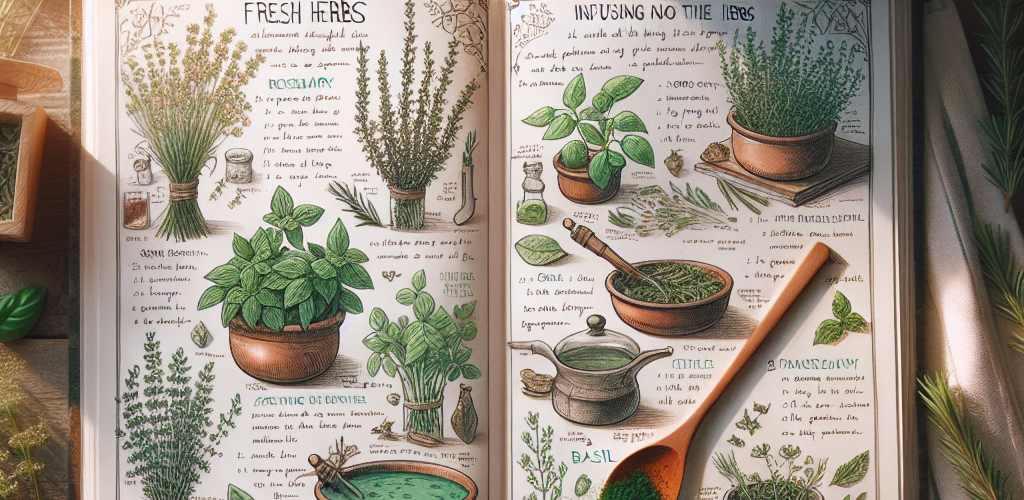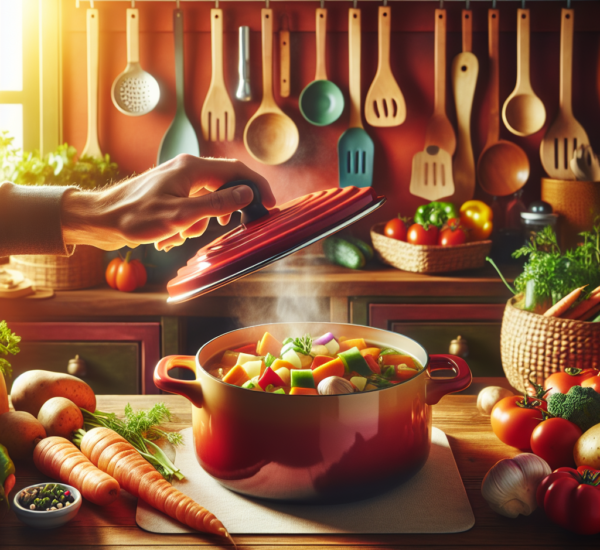Discover the magic of fresh herbs! Explore how these natural flavor enhancers can transform your culinary creations into unforgettable experiences. From parsley to sage, each herb brings its unique spark, elevating your dishes to new heights.
Table of Contents
- Understanding the Importance of Fresh Herbs
- Basics of Using Fresh Herbs
- Popular Fresh Herbs and Their Uses
- Tips for Storing Fresh Herbs
- Practical Tips for Cooking with Fresh Herbs
- Conclusion
- FAQ
Understanding the Importance of Fresh Herbs
Fresh herbs are not just garnishes but powerful ingredients that can amplify the flavor profile of any dish. They offer vibrant colors, potent flavors, and therapeutic aromas, making them indispensable in culinary arts. Leveraging the right herbs can significantly enhance both the taste and aroma, creating dishes that are not only delicious but also visually appealing.
Basics of Using Fresh Herbs
Knowing Which Herb to Use
Deciding which fresh herb to use can sometimes be daunting. However, a good rule of thumb is to think about the type of cuisine and flavors you want to highlight. For instance, basil goes perfectly with Italian dishes, while cilantro pairs well with Mexican cuisine. The key is to match the herb’s flavor intensity with the dish you are preparing.
Herbs vs. Spices
Often, people confuse herbs with spices. While both are used to flavor dishes, herbs typically come from the leafy part of a plant, whereas spices are derived from seeds, bark, or roots. Herbs are best used fresh for a subtle, aromatic enhancement to your food.
Popular Fresh Herbs and Their Uses
Basil
Basil is a sweet yet savory herb, frequently used in Italian and Thai cooking. It pairs beautifully with tomatoes and is a common ingredient in pesto.
Cilantro
Cilantro is known for its bright, tangy flavor. It’s widely used in Latin American and Southeast Asian dishes to add a burst of freshness.
Rosemary
With its woody aroma and potent flavor, rosemary is perfect for roasts and grilling, especially when combined with lamb or chicken.
Parsley
Often used as a garnish, parsley’s light peppery flavor makes it a versatile herb for different cuisines, from Middle Eastern to European dishes.
Tips for Storing Fresh Herbs
To make the most out of fresh herbs, proper storage is crucial. Here are some practical tips:
- Refrigeration: Wrap herbs like parsley, cilantro, and dill in a damp paper towel and place them in a plastic bag in the fridge.
- Freezing: For herbs like basil and chives, consider freezing them in oil or water using an ice cube tray.
- Drying: Hang herbs like rosemary and thyme upside down in a dark, dry place to preserve their flavors.
Practical Tips for Cooking with Fresh Herbs
Timing is Everything
Fresh herbs are best added towards the end of the cooking process to preserve their flavor and nutrients. Softer herbs like basil and parsley lose their potency if cooked for too long. However, sturdier herbs like rosemary and thyme can handle longer cooking times, making them great for braises and stews.
Chop with Care
Use a sharp knife when chopping herbs to avoid bruising them, which can lead to a loss of flavor. Chop them just before use to capture their full aroma and freshness.
Conclusion
Integrating fresh herbs into your culinary practices can profoundly transform the essence of your dishes. Whether you’re a novice home cook or a seasoned chef, understanding the nuances of using fresh herbs can elevate your cooking game. So, next time you’re in the kitchen, don’t shy away from experimenting with herbs to discover exciting new flavors!
For more culinary inspiration, explore our collection of diverse recipes here.
Frequently Asked Questions
What is the best way to chop fresh herbs?
For the best results, use a sharp knife to prevent bruising. Chop herbs just before you are ready to use them to maintain their freshness.
Can all herbs be frozen?
Not all herbs freeze well, but hearty herbs like rosemary and thyme can be frozen successfully. Consider freezing softer herbs in oil or water for better results.
How long do fresh herbs last?
When stored properly, fresh herbs can last up to two weeks in the refrigerator, while frozen herbs can last several months.




